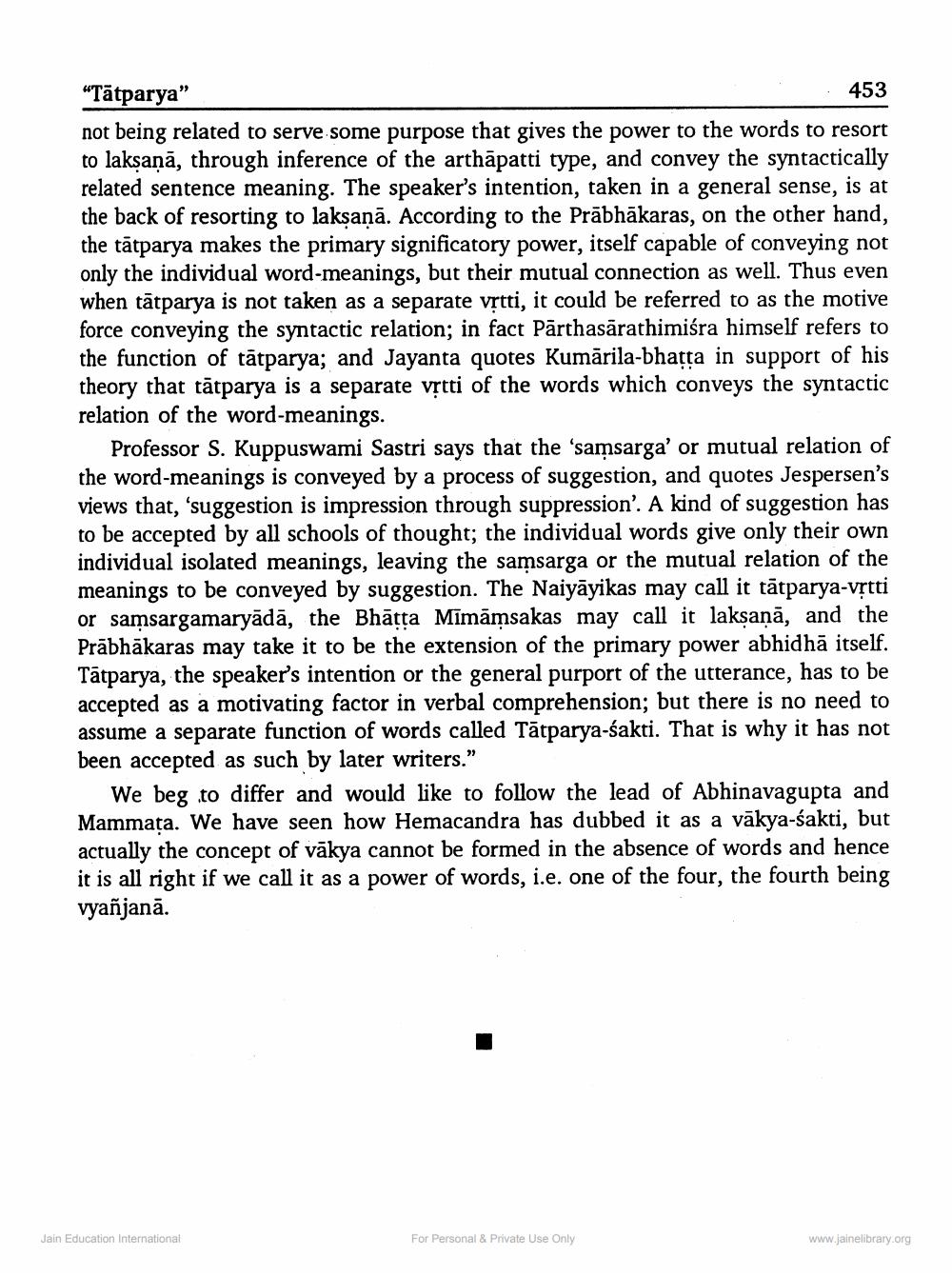________________
"Tātparya"
453
not being related to serve some purpose that gives the power to the words to resort to lakṣaṇā, through inference of the arthāpatti type, and convey the syntactically related sentence meaning. The speaker's intention, taken in a general sense, is at the back of resorting to laksanā. According to the Prābhākaras, on the other hand, the tātparya makes the primary significatory power, itself capable of conveying not only the individual word-meanings, but their mutual connection as well. Thus even when tātparya is not taken as a separate vrtti, it could be referred to as the motive force conveying the syntactic relation; in fact Pārthasārathimiśra himself refers to the function of tātparya; and Jayanta quotes Kumārila-bhatta in support of his theory that tātparya is a separate vrtti of the words which conveys the relation of the word meanings.
Professor S. Kuppuswami Sastri says that the 'samsarga' or mutual relation of the word-meanings is conveyed by a process of suggestion, and quotes Jespersen's views that, 'suggestion is impression through suppression'. A kind of suggestion has to be accepted by all schools of thought; the individual words give only their own individual isolated meanings, leaving the samsarga or the mutual relation of the meanings to be conveyed by suggestion. The Naiyāyikas may call it tātparya-výtti or samsargamaryādā, the Bhātta Mimāmsakas may call it laksanā, and the
ikaras may take it to be the extension of the primary power abhidhā itself. Tātparya, the speaker's intention or the general purport of the utterance, has to be accepted as a motivating factor in verbal comprehension; but there is no need to assume a separate function of words called Tātparya-śakti. That is why it has not been accepted as such by later writers."
We beg to differ and would like to follow the lead of Abhinavagupta and Mammata. We have seen how Hemacandra has dubbed it as a vākya-sakti, but actually the concept of vākya cannot be formed in the absence of words and hence it is all right if we call it as a power of words, i.e. one of the four, the fourth being vyañjanā.
Jain Education International
For Personal & Private Use Only
www.jainelibrary.org




